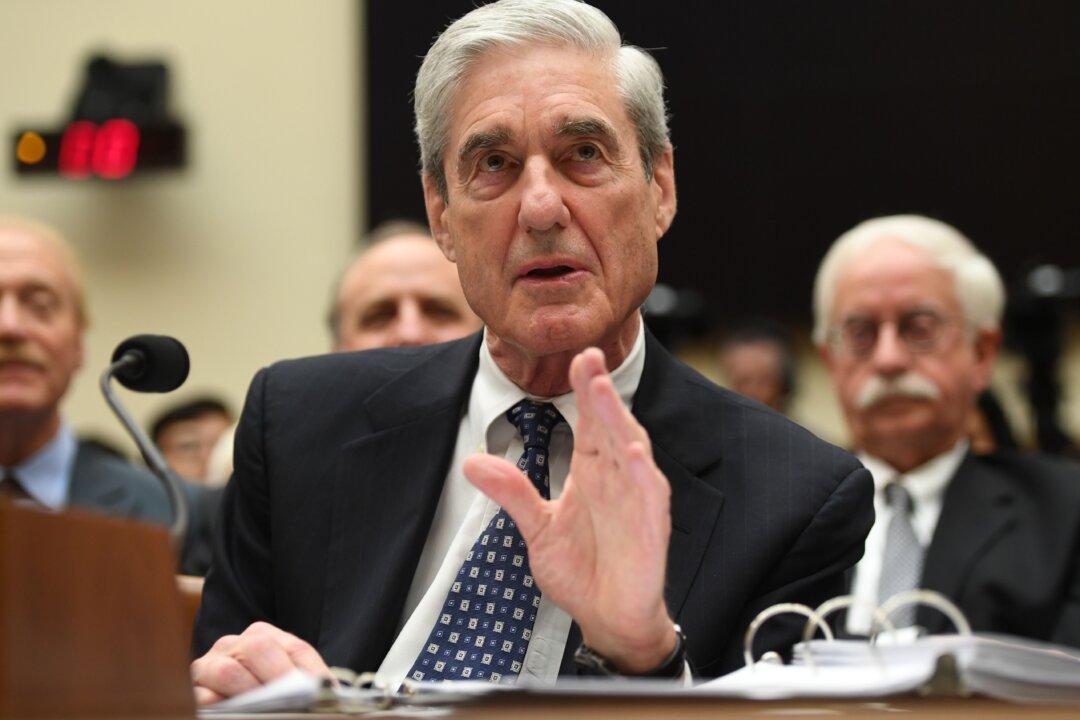An appeals court has ruled on Tuesday that the House of Representatives can have access to grand jury materials from former special counsel Robert Mueller’s investigation into Russian interference in the 2016 presidential election.
A three-judge panel on the U.S. Court of Appeals for the D.C. Circuit ruled 2-1 to uphold a lower court’s decision to give the Democrat-led House Judiciary Committee access to grand jury information redacted from Mueller’s 448-page report, including transcripts or exhibits referenced in the redactions.




